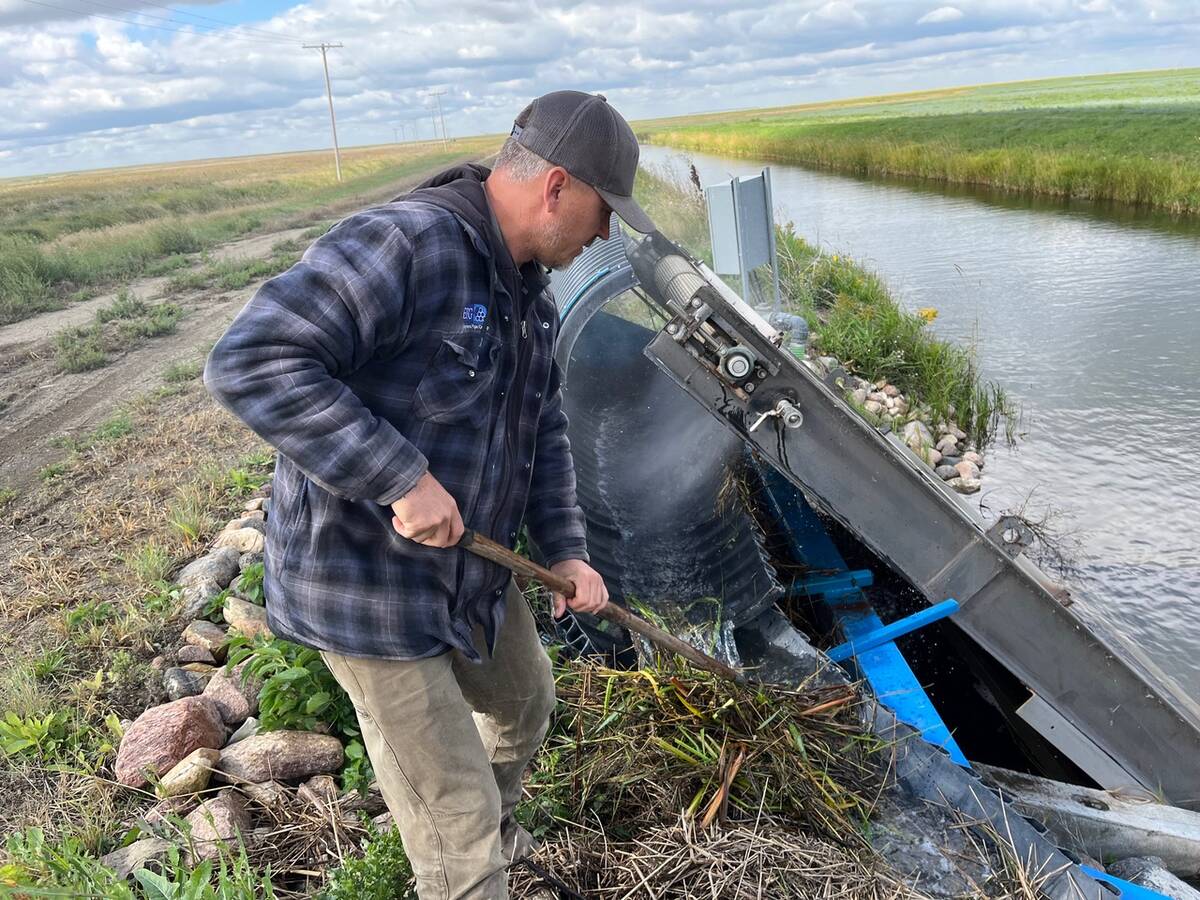An outbreak of equine herpes last spring that exposed more than 400 cutting horses at a competition showed the importance of improved biosecurity practices among owners and handlers.
Infectious diseases are common and horses are at greater risk of exposure because they are mobile, said Ashley Whitehead of the University of Calgary’s veterinary faculty, where she specializes in large animal internal medicine.
Whitehead is also a member of the team teaching horse owners about biosecurity in co-operation with the Alberta Equestrian Federation and Alberta Veterinary Medicine Association.
Read Also

Saskatchewan farmer uses tile drainage to manage water
The integration of both irrigation and tile drainage results in higher yields, water efficiency, improved soils and less nutrient runoff, says one producer.
“We tend to get a little bit lax in what we do to protect our animals,” she said at a recent Calgary workshop.
“Our herpes outbreak this year was a good thing in some ways because it brought it back to the forefront. It brought something as simple as hand washing back to the forefront for our horse owners to think about that.”
The course is designed to help horse owners prevent disease and assess potential health risks at their farms or when they travel with their animals. It explains disease cycles, asks specific questions about management and suggests changes.
“You don’t have to live in a bubble, but you have to learn to understand and manage the risks,” she said.
Viruses, bacteria and parasites can cause disease and often strike old, young and less healthy animals.
Horses often spread disease with a cough when bacteria or viruses scatter in the vapour. However, the most common problem occurs when horses touch each other.
“That nose to nose contact is a perfect area to pass one thing to the next horse,” she said.
An established biosecurity plan starts at the farm as well as at shows and competitions:
• Keep vaccines up to date. Many barns and events require proof of this. High level events may include horses from around the world with different levels of immunity so the animals may have to be kept separate to avoid passage of new disease.
• Establish a disease response plan with the vet that is specific to the farm. Keep health records of individuals. Follow a vaccination program that is specific to the horse and the herd. If one is vaccinated the rest can still get sick, but risk is lower if most are vaccinated. Contact the vet if a disease occurs and follow the advice.
• Establish zones of control on the farm. Consider who is allowed to enter certain areas of the barns and what are the critical control points on the farm. Many facilities allow the public to move freely about the place, which could be a risk factor. A visitor log that everyone signs can be helpful in tracking disease or warning people if a problem occurs.
• Quarantine new arrivals and returning horses for three weeks, which is the most common incubation period for most diseases.
• Isolating horses is the ideal but is not always practical, said Whitehead. She suggested setting aside a stall at one end of the alley where the horse cannot touch the others. Use separate buckets and muck out that stall last.
• Keep the show string separate from the brood mares.
• Design a manure management plan. Ideally it should be composted to kill parasites. Horses may be reinfected If manure is spread over the pasture. If possible, rotate the pastures so other species graze it for a year.
• Participate in traceability programs.
• Use individual water buckets from the farm and avoid communal sources at events. Contaminated equipment such as wheelbarrows for clearing away manure may be shared at an event and spread disease.
• Use your own trailer as a tie rail or choose a non porous surface and disinfect it before use. A 10 percent bleach solution or a commercial product such as Virkon is a useful general disinfectant. Hot water does not do a good enough job.
• Remove organic material such as manure before spraying surfaces.
• Don’t forget to disinfect the trailer, especially if it was used to haul a sick horse with diarrhea.
• Use personal protection such as coveralls and foot covers.
• Control pests such as mice and flies.
• Wash hands frequently.
• Post biosecurity signs on the farm so some parts are not open to the public. Signs are available from the Alberta government by calling 780-422-6630.

















